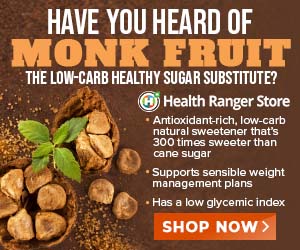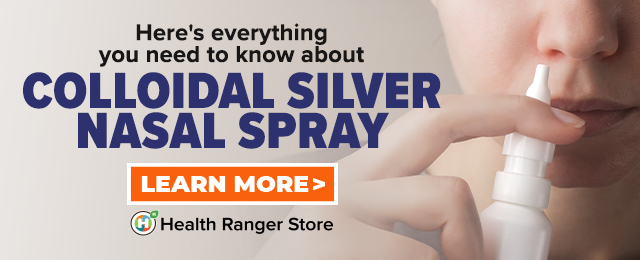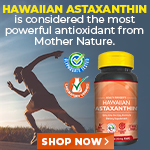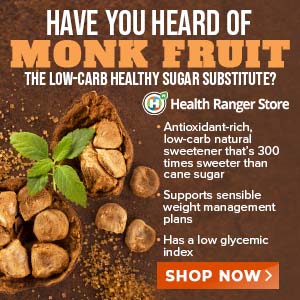
Hypoglycemia is controllable
Sunday, December 09, 2012 by: Hesh Goldstein
Tags: hypoglycemia, prevention, metabolism
- Newly released JFK files reveal Pentagon's role in creating Lyme disease and covid in the same lab
- Ginseng's hidden anti-aging power: How compound K is rewriting the rules of skincare
- “Endgame: The Hidden Agenda 21” unveils a world of conspiracy and control
- L.A.'s rebuilding nightmare: Only 4 permits issued after fire destroys 6,000 homes
- Scientists demand FDA withdraw mRNA COVID vaccines amid contamination and gene therapy concerns
- Senate Democrats deny censorship industrial complex existed, defend government's role in silencing dissent
- Dr. Suzanne Humphries makes bombshell appearance on Joe Rogan podcast, exposing vaccine industry deception back to POLIOMYELITIS
- Former Congresswoman exposes CCP's deep infiltration of California through universities, ports, and fentanyl
- “The shame of Minnesota”: Somali immigrants behind $250 million child nutrition fraud in largest COVID-era scam
- PROCESSED TABLE SALT in foods found to fuel depression
- Despite surge in MMR vaccination in Texas, measles outbreaks continue: Is VACCINE SHEDDING fueling the spread?
- Here are TEN all-natural ways to protect your garden without using harmful chemicals
- “Independent” anti-Russia outlet MEDUZA faces COLLAPSE as US funding dries up
- BPA: The hidden hormone disruptor sabotaging your health - and how to fight back
- Chewing gum's dirty secret: How your daily habit could be flooding your body with microplastics
- The hidden battle in your glass: How A1 and A2 milk could shape your health
- Catastrophic 7.7 earthquake devastates Myanmar and Thailand; death toll could reach 100,000
- Nomi Prins reveals how central bankers reshaped the global economy in “Collusion”
- Newly released JFK files reveal Pentagon's role in creating Lyme disease and covid in the same lab
- Analysis: The coming economic collapse, a mass uprising and Trump's three secret weapons to halt the growing revolt
- Festive flavors: The sweet history, nutritional profile and health benefits of pecan pie
- Elon Musk: Aliens could be here on Earth RIGHT NOW
- Trump reverses course on Gaza plan, says “nobody is expelling Palestinians”
- Big Pharma's $8 Billion bribery scheme exposed: how doctors are pushed to prescribe junk science, not heal
- Boys are back in town: Trump’s patriotic alpha crew takes the wheel while toxic females ride in the backseat
- Reclaim your health: How midlife exercise reverses years of inactivity
- A lack of integrity in Academia: Harvard professor found GUILTY of fraudulent research to promote CRT theory
- Survival 101: Effective EMF blocking techniques
- EPA advisor admits the agency is funneling billions to climate groups ahead of Trump’s return to White House
- Dr. Mike Yeadon releases 15-minute testimony - WATCH - about genocidal intent of COVID “vaccines”
- 5 Simple steps to boost your brainpower: How to strengthen executive function in a distracted world
- Florida takes a stand: DeSantis proposes permanent ban on mRNA vaccine mandates
- Sugarcane extract superior to cholesterol-lowering drugs?
- Mike Adams Sermon 66: God will DESTROY ISRAEL for its wickedness
- Pilots report mysterious lights 'moving at extreme speeds' across Oregon skies
- Space war brewing? Russia threatens to destroy Starlink satellites
- EPA advisor admits the agency is funneling billions to climate groups ahead of Trump’s return to White House
- California's social media censorship law struck down: A victory for free speech or a threat to online safety?
- The Health Ranger releases “Vaccine Zombie” song and music video, using AI-animated zombies for the music video
- Dr. Mike Yeadon releases 15-minute testimony - WATCH - about genocidal intent of COVID “vaccines”
- The pandemic as a tool for INDOCTRINATION: Understanding “The Indoctrinated Brain” by Dr. Michael Nehls
- Newly released JFK files reveal Pentagon's role in creating Lyme disease and covid in the same lab
- Florida takes a stand: DeSantis proposes permanent ban on mRNA vaccine mandates
- Mike Adams releases country western hit single: Goin’ Back in Time is Comin’ Home
- Mike Adams releases music poetry sensation: A Child of God
- “Why we influenced the 2020 elections”: Facebook files reveal the coordinated effort to bury the Hunter Biden laptop story
- Unpacking the Lies That We’ve Been Fed – new song and music video released by Mike Adams, the Health Ranger
- RFK Jr. clears key hurdle: Sen. Susan Collins backs controversial HHS nominee, signaling a new era for health policy
- Mike Adams releases new song and music video: Nothing More Disgusting Than a Globalist
- Michigan sheriff announces criminal investigation into 2020 election crimes, Dominion Voting Systems
- Israeli soldiers accused of even more torture and abuse in the West Bank
- Migrants are taking advantage of recent hurricanes to scam residents and loot their homes
- House Intelligence Committee calls for the ARREST and PROSECUTION of Dr. Anthony Fauci
- Rep. Nancy Mace introduces bill to ban biological males from female facilities on federal property
- Red Cross issues warning to stop blood plasma donations from vaccinated people
- Scientists confirm: GENIUS brain function can be spontaneously unleashed in humans without any apparent cause
- EPA advisor admits the agency is funneling billions to climate groups ahead of Trump’s return to White House
- HYSSOP: What research reveals about the health benefits of this ancient holy herb
- Two containers with completed ballots fall out of truck in Florida
- Fully vaccinated about to see “tsunami” of illness and death, warns virologist
- Global leaders unite to clamp down on “misinformation” with UN-backed Cascais Declaration
- BREAKING: 2025 NDAA authorizes mandatory military draft of WOMEN across America… as Pentagon pursues global NUCLEAR war with both Russia and China at the same time
- Michael Yon warns of a ZIONIST TAKEOVER in Trump’s second administration
- BOMBSHELL: DNA testing kits are a SCAM to develop ethnic-specific bioweapons
- Ozempic and Wegovy weight loss drugs are injectable LIZARD VENOM PEPTIDES that may unleash a devastating wave of organ failure… side effects align with symptoms of SNAKE BITES
- Israeli soldiers accused of even more torture and abuse in the West Bank
- These 13 countries just signed an agreement to engineer a global FAMINE by destroying food supply
- NASA admits that climate change occurs because of changes in Earth’s solar orbit, and NOT because of SUVs and fossil fuels
- RFK Jr. clears key hurdle: Sen. Susan Collins backs controversial HHS nominee, signaling a new era for health policy
- Sermon 30: How Jesus reveals Caesar’s FAKE CURRENCY and FALSE AUTHORITY
- Coriander seeds: Ancient medicine backed by modern science
- Arizona officials claim Maricopa County needs 10-13 days to tabulate results of the election
It is not a disease as such, but rather a symptom that arises from a wide range of hormonal abnormalities and imbalances reflecting the irregular function of many glands and organs.
Unfortunately, it often goes undiagnosed and its multitude of symptoms are frequently labeled as emotional or psychological in origin. The symptoms are usually episodic, being related to the time and content of the previous meal and are usually improved by eating.
Symptoms include nervousness, irritability, emotional problems, fatigue, depression, craving sweets, inability to concentrate, cold sweats, shakes, palpitations, tingling of the skin and scalp, dizziness, trembling, fainting, blurred vision, cold extremities, nausea, midmorning and mid-to-late afternoon tiredness, anxiety, indecisiveness, crying spells, allergies, convulsions, and hyperactivity, for openers.
To understand hypoglycemia a bit better a little psychological background is essential.
The body needs a steady supply of readily available energy to function. This energy is derived from food primarily in the form of complex carbohydrates, which are converted into their simplest common denominator, glucose, in the process of digestion.
Glucose is essential for all bodily activity and is especially necessary for the function of the nervous system and brain, which responds drastically to abnormal variations of the blood glucose level (BGL).
Normally, the BGL is kept within a very narrow range variation by various hormones, which respond rapidly to slightest of changes. Insulin from the pancreas is released when glucose enters the blood from digested food, lowering the BGL to its normal range. The sugar is then stored in the liver and muscles in the form of glycogen, or converted to fat for later use. Cortisol and growth hormone counterbalance the insulin action. If any of these hormones are secreted too rapidly or too slowly an imbalance of the BGL can occur.
If the blood glucose level rises above normal, or if glucose is delivered to the blood too rapidly, as it is following a meal of refined carbohydrates and/or excess sweets, the body deals with the excess in two ways.
One, it initiates a sudden burst of insulin to counteract what the body perceives as a very dangerous imbalance, and two, it also begins to convert the excess glucose in certain "glucose-insensitive cells" that are found in the eye, kidney, myelinated nerves, and red blood cells, first into fructose and then sorbitol.
Why this is important is since both fructose and sorbitol are relatively insoluble within the cell and tend to crystallize out, leading to cataract formation in the eye, bottom membrane thickening in the kidney, damage to nerves, and altered oxygen-carrying capacity in red blood cells. This sorbitol pathway is initiated each time the blood glucose levels rise rapidly on the glucose rollercoaster ride that hypoglycemics ride every day.
In some cases of hypoglycemia insulin is often secreted in excess, lowering the BGL too far and too fast. This is often called hyperinsulinism. The most commonly involved glands are the adrenals, pancreas, and liver. In some cases of hyperinsulinism, normal levels of insulin will appear but a reduced sensitivity to insulin will manifest. The result will be a pre-diabetes type of glucose metabolism where sugar levels remain elevated for a prolonged period and then fall below normal quickly.
The two most significant factors of hypoglycemia in the Western world are diet and stress. The SAD (Standard American Diet) is literally a prescription for hypoglycemia, with its common foods like white bread, refined grains, sugar, soda, and coffee.
Sugar and refined carbs are absorbed very quickly into the bloodstream, as they require little digestion due to the stripping of their protein and fiber in the refining process. This rapid increase in the BGL causes the pancreas to become hypersensitive to sugar.
In time the pancreas learns to secrete very large amounts of insulin in response to the rise of the BGL, causing a rapid lowering of insulin in response to the rise in BGL. This then causes a speedy lowering, below normal, of the BGL. During this low period the symptoms of hypoglycemia manifest due to the deficiency of glucose supply to the brain and the resulting adrenal shock response.
The adrenals recognize the low sugar level as an acute danger and effect an immediate and appropriate response. In time the adrenals become overstressed by these up-down emergencies and lose their ability to adequately cope with the situation.
One problem is that most people are clueless about excess white sugar, not only being a refined carbohydrate that can cause disinsulinism leading to hypoglycemia, but excess honey, maple syrup, fruit, fruit juice, dried fruit, and even vegetable juice will create such a quick rise in BGL, that pancreatic hypersensitivity will manifest.
Stress also plays a major role via the adrenals since stress is also recognized by the adrenals as an emergency situation triggering similar responses, once again overburdening the adrenals.
To further aggravate the situation, stress depletes vitamin B complex, which is essential for metabolism of carbohydrates, and vitamin C, both of which are necessary for proper adrenal function. With the carbs being stripped of vitamin B complex, now we need a vitamin b complex for utilization.
So, now we go from the rollercoaster to the merry-go-round because coffee stimulates the adrenals, mobilizing the body's energy reserves in the liver and muscles removing the body's fail-safe mechanism to keep the BGl in balance by further abusing the adrenals.
To get out of the amusement park the importance of proper diagnosis and treatment of hypoglycemia should never be underestimated.
Way back when, hypoglycemia was always considered a non-disease. Some MDs said that the label "hypoglycemia" was too often used for any emotional problems that walked into their office. As times changed and brains began to work, hypoglycemia has clearly been associated with physical, mental, and emotional disorders, including hyperactivity, schizophrenia, anti-social behavior, criminal personalities, drug addiction, impotency, alcoholism, epilepsy, asthma, allergies, ulcers, and arthritis.
In fact, there should be as much attention placed on preventing and treating hypoglycemia as has been placed on diabetes because the two disorders are often manifestations of a similar endocrine imbalance, due to the same causes.
Back in the 60s, the seriousness of hypoglycemia was pooh-poohed. Often an MD would recommend a candy bar when someone complained of weakness. Welcome to the rollercoaster. The short-term solution for the cause of the problem in the first place.
Basically, the solution is to remove the initial causes and reestablish the normal hormonal controlling mechanisms. Problem: once the pancreas has been hypersensitive to sugar over a long period of time, complete recovery is not always possible. But, it can be kept under control with a change in diet and lifestyle keeping the symptoms under control and repressed. But, go back and back come the aggravating symptoms.
What is needed is a diet of high-fiber complex carbohydrates - whole wheat bread free of sugar and high-fructose-corn-syrup, quinoa (a complete protein grain), brown rice, buckwheat, millet, etc., adding legumes or organic soy products for protein. With this, digestion will be slower.
Dried fruit, fruit, fruit juices, and fresh vegetable juices are all rapidly absorbable but should be consumed in moderation. When eating fruit it's best to be taken with some protein in the form of nuts or organic cottage cheese.
Other great foods are oatmeal, unsweetened granola, brewer's yeast (B complex), rice milk, spirulina, avocado, fresh, raw salads, baked potatoes, baked sweet potatoes, steamed cruciferous vegetables, or lightly sauteed, bran, chia seeds, onions, organic coconut oil, extra virgin olive oil, and apple cider vinegar.
Recommended fruits are papaya, apples, grapefruit, oranges, bananas in moderation and fresh berries.
Stay away from alcohol, coffee, cigarettes, and dates, figs, plums, and grapes. They are just too sweet.
Aloha!
About the author:
I have been doing a weekly radio show in Honolulu since 1981 called "Health Talk". In 2007 I was "forced" to get a Masters degree in Nutrition because of all the doctors that would call in asking for my credentials. They do not call in anymore. Going to www.healthtalkhawaii.com enables you, among other things, to listen to the shows. I am an activist. In addition to espousing an organic vegan diet for optimum health, I am strongly opposed to GMOs, vaccines, processed foods, MSG, aspartame, fluoridation and everything else that the pimps (Big Pharma, Monsanto and the large food companies) and the hookers (the doctors, the government agencies, the public health officials, and the mainstream media) thrust upon us, the tricks.
After being vaccinated with the DTP vaccine as a child I developed asthma. After taking the organic sulfur crystals (they are harvested from the pine trees in Louisiana) in November of 2008 for 10 days my asthma reversed and has not come back over 4 years later, 18 cases, so far, of autism have been reversed, as has cancer, Alzheimer's and Parkinson's disease, osteoarthritis, joint pain, astigmatism, gum disease, increased sexual activity, heavy metal and radiation elimination, parasite elimination, free radicals elimination, faster athletic recovery time, increased blood circulation, reduced inflammation, resistance to getting the flu, reduction of wrinkles, allergy reduction, reduced PMS and monthly period pain, nausea, migraines and so much more. And it's only possible because of the oxygen it releases that floods the cells of the body. The sulfur, as proven by the University of Southampton in England, enables the body to produce vitamin B12 and the essential amino acids. You can find out more about this incredible nutrient also on my website - www.healthtalkhawaii.com -.
My book, "a Sane Diet For An Insane World", has been published. It can be viewed at
www.asanediet.com.
Hypoglycemia at FETCH.news
Get independent news alerts on natural cures, food lab tests, cannabis medicine, science, robotics, drones, privacy and more.
Take Action: Support Natural News by linking to this article from your website
Permalink to this article:
Embed article link: (copy HTML code below):
Reprinting this article:
Non-commercial use OK, cite NaturalNews.com with clickable link.
Follow Natural News on Facebook, Twitter, Google Plus, and Pinterest
Science News & Studies
Medicine News and Information
Food News & Studies
Health News & Studies
Herbs News & Information
Pollution News & Studies
Cancer News & Studies
Climate News & Studies
Survival News & Information
Gear News & Information
News covering technology, stocks, hackers, and more



"Big Tech and mainstream media are constantly trying to silence the independent voices that dare to bring you the truth about toxic food ingredients, dangerous medications and the failed, fraudulent science of the profit-driven medical establishment.
Email is one of the best ways to make sure you stay informed, without the censorship of the tech giants (Google, Apple, Facebook, Twitter, YouTube, etc.). Stay informed and you'll even likely learn information that may help save your own life."
–The Health Ranger, Mike Adams













































